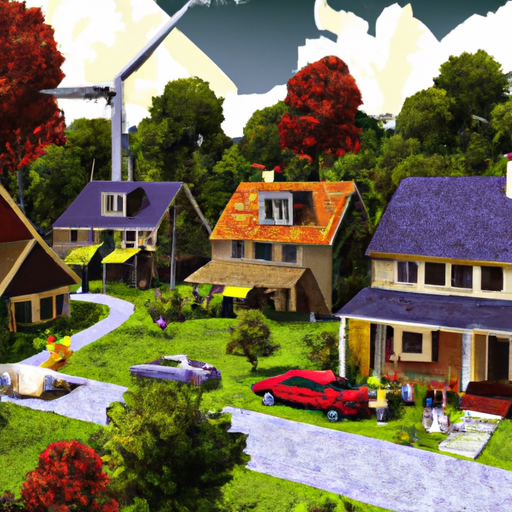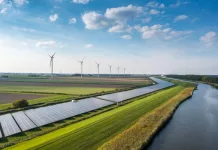In the United States, affordable housing and eco-friendly practices are joining forces. Policy changes at both federal and local levels have been set in motion to ensure affordability and ecological sustainability go hand in hand.
$100 Million Allocation from HUD to Encourage Green Living
The US government recently set aside over $100 million for the Department of Housing and Urban Development (HUD) through the Inflation Reduction Act (IRA). This money will be used to renovate more than 1,500 low-income homes to become zero energy and resilient to climate change. The aim is to reduce the financial toll of decarbonizing affordable housing by half within the next 10 years. The renovations not only decrease energy waste, but also mitigate the impacts of extreme weather events and reduce expenses for families.
Energy-Efficient Goals of the Biden-Harris Administration
The Biden-Harris Administration is resolved to lower energy bills and reduce emissions from residential and commercial buildings. Making buildings more energy-efficient can also improve public health and lessen housing costs for many Americans.
Funding Affordable Housing in Underprivileged Communities
All investments are aligned with the Biden-Harris administration’s commitment to environmental justice and will be directed towards providing affordable accommodations for low-income families. The Low-Income Communities Bonus Credit, part of the IRA, will potentially facilitate up to 1.8 gigawatts of clean energy investment each year in underserved areas. This aims to encourage the construction of solar and wind projects by providing beneficial tax incentives.
The “Affordable Home Energy Shot” Initiative
The launch of the “Affordable Home Energy Shot” by the Department of Energy is another commendable effort towards creating an eco-friendlier nation. This initiative sets an ambitious target of halving the cost of decarbonizing affordable housing, along with helping disadvantaged households and communities of color.
Towards Zero Emissions
To normalize zero emissions and resilient housing by 2030, the government is devising a distinct definition for zero emissions. This will provide a cohesive, measurable, and provable pathway towards zero-emission property development. With around 130 million existing structures consuming more than $400 billion annually for utilities and 10 million new homes expected by 2030, having a consistent aim can push climate-friendly investments.
HUD’s Climate-focused Housing Supply Strategy
The Department of Housing and Urban Development introduced a Climate Framework to outline primary funding opportunities for a climate-centric housing strategy. This supplements HUD’s previously released Funding Navigator, a searchable database of various federal agency resources focused on enhancing climate resilience, energy efficiency, and environmental justice.
Sustainable Affordable Housing Trends
Sustainable affordable housing evolved from a collective movement that values economic equality, environmental sustainability, and public health. Nation-wide, leaders strive to establish housing that is affordable, safe, environmentally friendly, and beneficial to everyone involved.
Success Stories of Sustainable Affordable Housing
A great example of sustainable affordable housing is the Preservation of Affordable Housing (POAH)’s Brewster Woods. Providing affordable living spaces for low-income families, it has received an award for excellent housing affordability. This 100% affordable community provides quality and affordable homes, with specific provisions for individuals with disabilities and families at risk of homelessness.
Brewster Woods: Leading the Way in Sustainable Affordable Housing
Brewster Woods stands as the first multi-family Passive House certified project in the Cape Cod area. Developed in partnership with the Housing Assistance Corporation (HAC) and the Brewster Housing Authority, it represents a blueprint for sustainable community living.
This project recently achieved the Outstanding Housing Affordability Project award from the Home Builders and Remodelers Association of Cape Cod, marking its significant contribution to the affordable housing initiative.
About POAH
POAH is a national not-for-profit aiming to secure, create, and sustain affordable, healthy homes that offer economic stability, racial equity, and access to opportunities for everyone.

























